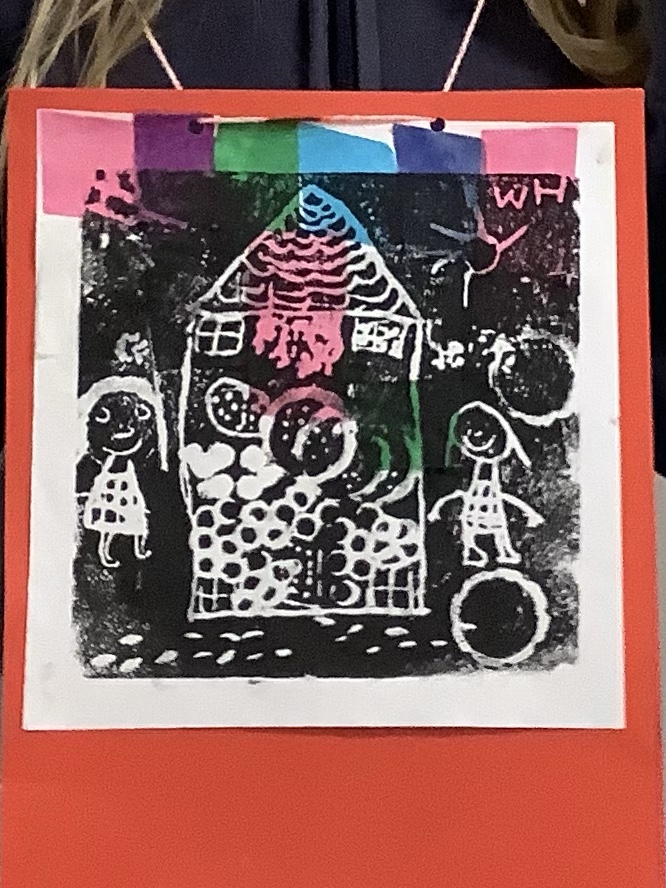
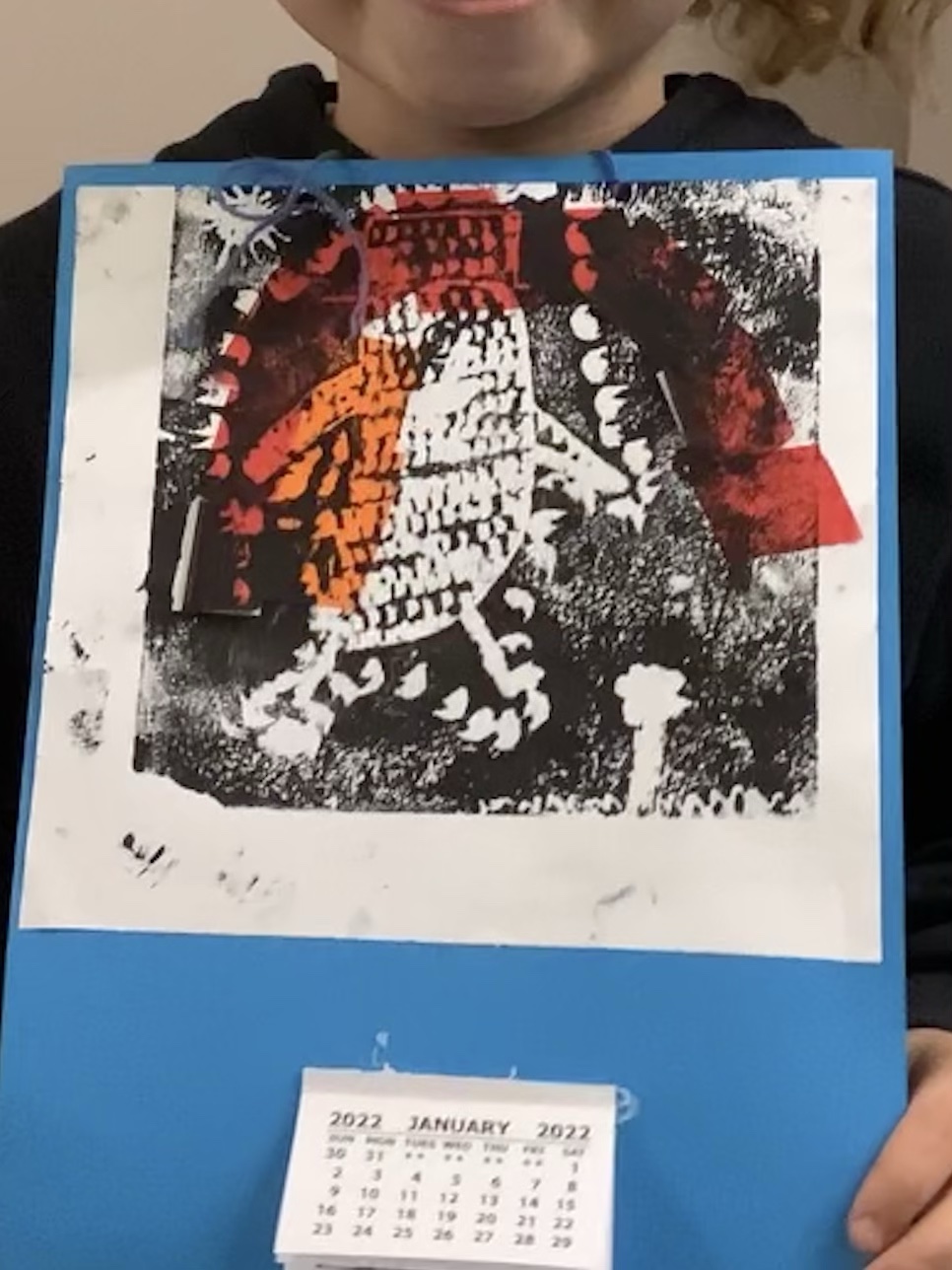


WUSU Club have had a successful series of sessions after school this half term. They have made two new dances for you to enjoy and learn:
Dance Monkey and and Christmas Special, One More Sleep
WUSU club will be continuing after Christmas. Keep an eye out for letters about after school clubs so you can decide if you’d like to join in with any.
We hope you’re managing to stay happy, healthy and safe while you’re not with us here in school. You are still very much a part of our school community so please get in touch with us if you need to.
Maths
Have a go at these maths lessons and worksheets.
You don’t have to print the worksheets. Your child can write or draw their answers on paper. Your child’s learning will be most effective if you sit with them to pause the clip and check / praise / support your child as the clip moves on.
Don’t forget to practise number bonds on Numbots or times tables on Times Table Rock Stars. Email your child’s class teacher if you need your login and password details.
(Suggested time: 30 minutes of Maths and 15 minutes of Numbots/Rock Stars daily)
Reading fluency
This is the reading fluency that we’ll read in class this week. In school, we generally follow this sequence:
(Suggested time: 15 minutes daily)
Phonics
We teach a phonics lesson daily at school. Your child should have a ‘Practise Phonics’ book that they bring home from school. The sticker on the front will indicate which phase they’re working at. On Phonics Play, the activities and games match the phases. If you’re unsure which phase your child is working on, email your class teacher.
If your child has completed the phonics reading books, they can use some Phase 5b, 5c, 5d or Phase 6 resources.
Use a different Phonics Play activity for :
Login details are Sphere (user name) and Spher3 (password).
(Suggested time: 20 minutes daily)
Reading
We’ll be using this ‘RIC‘ text in class to practise comprehension skills.
RIC stands for:
Read for 10-15 minutes daily. You could read the books you have brought home from school or any other books you have at home. Remember that the ‘Practise Phonics’ book is designed to be read more than once, to help with segmenting (sounding out), blending (putting the sounds back together) and fluency.
(Suggested time: 10-15 minutes daily)
Writing
These writing lessons all about non-chronological reports. There’s a whole series of lessons, but start at Lesson 1 and work through, doing one (or maybe even two) each day. (If you’re self-isolating in your second week, stick with the series of lessons you’ve already started and aim to complete the full series.)
(Suggested time: 30-40 minutes for each)
Spelling
This week’s spellings are on our spelling page. Complete one task each day:
(Suggested time: 15-20 minutes daily)
Topic
Our topic this half-term is art. Look at these lessons on printing. Or you can get creative using ideas from The Let’s Go Club on the BBC.
(Suggested time: 30-40 minutes)
Science
Our science lessons are all about investigating. Have a go at these six lessons. Start at Lesson 1 and work through, doing two or three in the week.
(Suggested time: 30-45 minutes)
PE
Don’t forget to do some daily exercise!
Do two of these Five Minute Moves from Joe Wicks each day – spread them across the day as if they were playtimes, maybe!
Have a go at one of the Change for Life indoor activities or a Cosmic Kids yoga session each day.
(Suggested time: 30 minutes daily)
Extra stuff…
As an extra (or as an alternative, if this helps to motivate your child)…
This sequence of lessons is all about The Nativity story.
Living and Learning is important to help us live and learn together. Here are some lesson from Oak National Academy called Forever Friends.
We hope you’re managing to stay happy, healthy and safe while you’re not with us here in school. You are still very much a part of our school community so please get in touch with us if you need to.
Maths
Have a go at these maths lessons and worksheets.
You don’t have to print the worksheets. Your child can write or draw their answers on paper. Your child’s learning will be most effective if you sit with them to pause the clip and check / praise / support your child as the clip moves on.
Don’t forget to practise number bonds on Numbots or times tables on Times Table Rock Stars. Email your child’s class teacher if you need your login and password details.
(Suggested time: 30 minutes of Maths and 15 minutes of Numbots/Rock Stars daily)
Reading fluency
This is the reading fluency that we’ll read in class this week. In school, we generally follow this sequence:
(Suggested time: 15 minutes daily)
Phonics
We teach a phonics lesson daily at school. Your child should have a ‘Practise Phonics’ book that they bring home from school. The sticker on the front will indicate which phase they’re working at. On Phonics Play, the activities and games match the phases. If you’re unsure which phase your child is working on, email your class teacher.
If your child has completed the phonics reading books, they can use some Phase 5b, 5c, 5d or Phase 6 resources.
Use a different Phonics Play activity for :
Login details are Sphere (user name) and Spher3 (password).
(Suggested time: 20 minutes daily)
Reading
We’ll be using this ‘RIC‘ text in class to practise comprehension skills.
RIC stands for:
Read for 10-15 minutes daily. You could read the books you have brought home from school or any other books you have at home. Remember that the ‘Practise Phonics’ book is designed to be read more than once, to help with segmenting (sounding out), blending (putting the sounds back together) and fluency.
(Suggested time: 10-15 minutes daily)
Writing
These writing lessons all about non-chronological reports. There’s a whole series of lessons, but start at Lesson 1 and work through, doing one (or maybe even two) each day. (If you’re self-isolating in your second week, stick with the series of lessons you’ve already started and aim to complete the full series.)
(Suggested time: 30-40 minutes for each)
Spelling
This week’s spellings are on our spelling page. Complete one task each day:
(Suggested time: 15-20 minutes daily)
Topic
Our topic this half-term is art. Look at these lessons on printing. Or you can get creative using ideas from The Let’s Go Club on the BBC.
(Suggested time: 30-40 minutes)
Science
Our science lessons are all about investigating. Have a go at these six lessons. Start at Lesson 1 and work through, doing two or three in the week.
(Suggested time: 30-45 minutes)
PE
Don’t forget to do some daily exercise!
Do two of these Five Minute Moves from Joe Wicks each day – spread them across the day as if they were playtimes, maybe!
Have a go at one of the Change for Life indoor activities or a Cosmic Kids yoga session each day.
(Suggested time: 30 minutes daily)
Extra stuff…
As an extra (or as an alternative, if this helps to motivate your child)…
This sequence of lessons is all about The Nativity story.
Living and Learning is important to help us live and learn together. Here are some lesson from Oak National Academy called Forever Friends.
We hope you are all excited about our Christmas performance, Wriggly Nativity. Please could all costumes be on school by Monday 06 December as we will be filming next week. Thank you.
We have thoroughly enjoyed our art topic and learnt lots of new skills and knowledge. We have been learning about primary (red, blue, yellow) and secondary colours. We learnt how to mix primary colours to make new, secondary colours. We added colour to the artwork we created during our visits to Leeds Art Gallery.
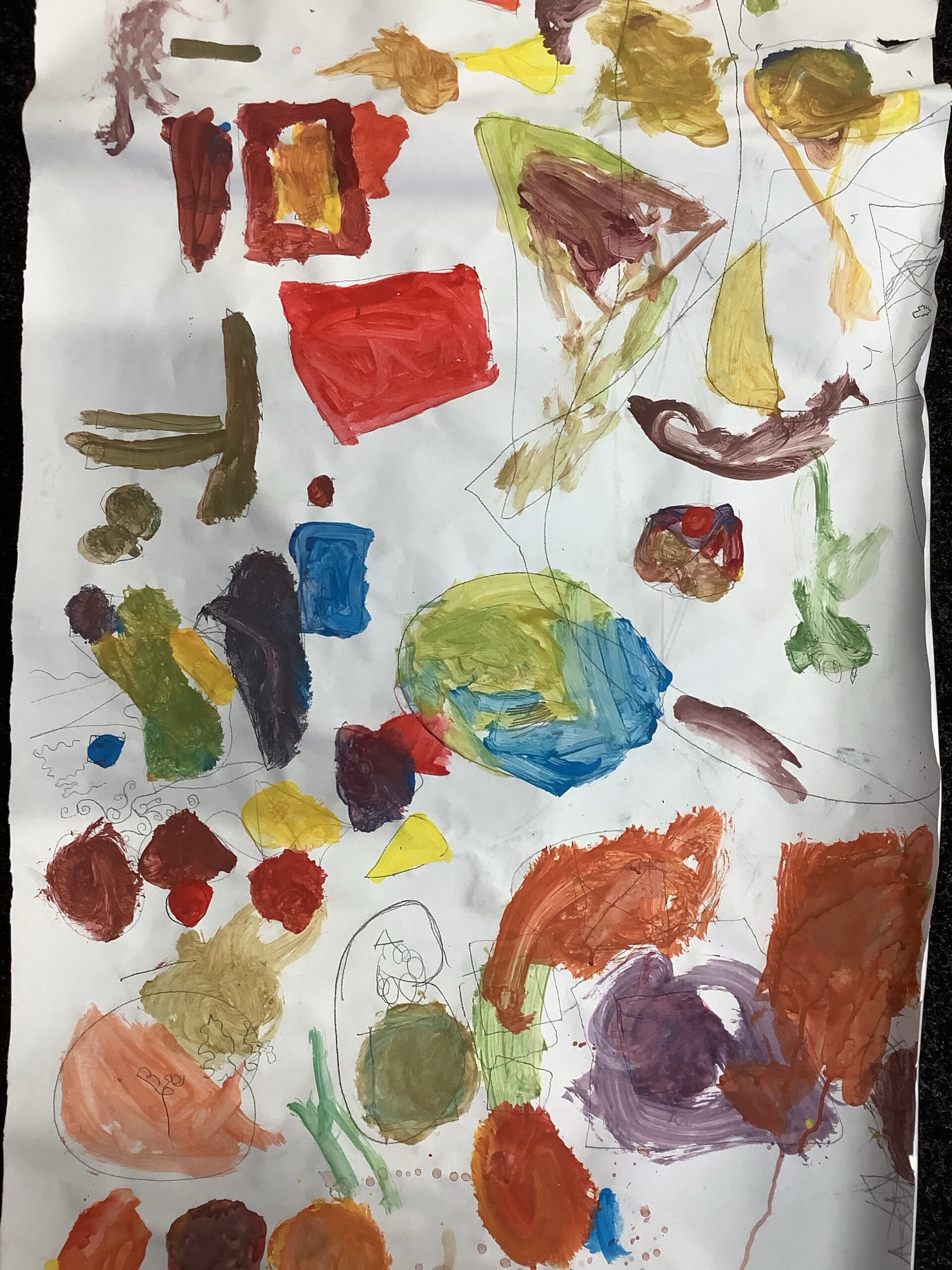
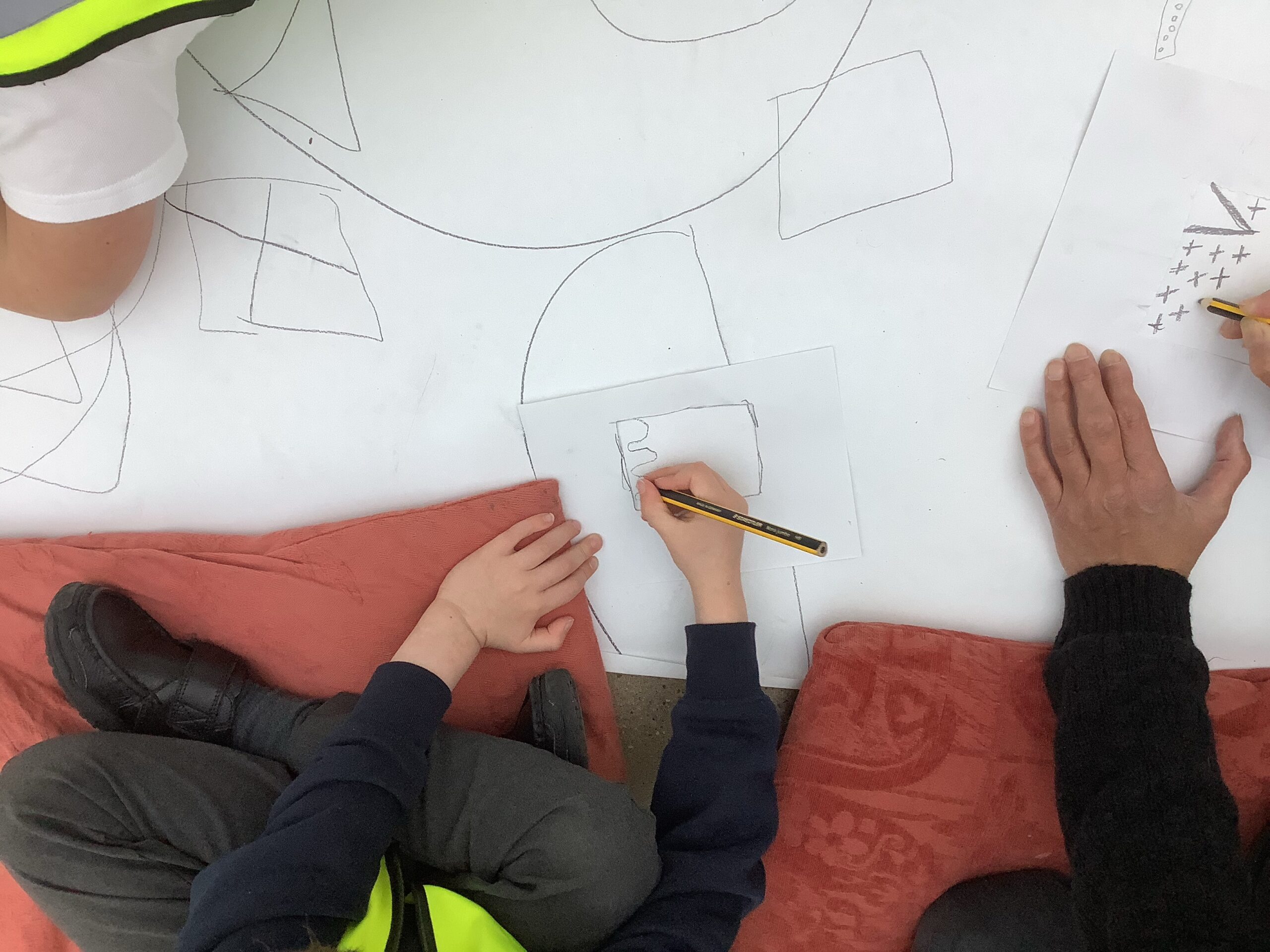
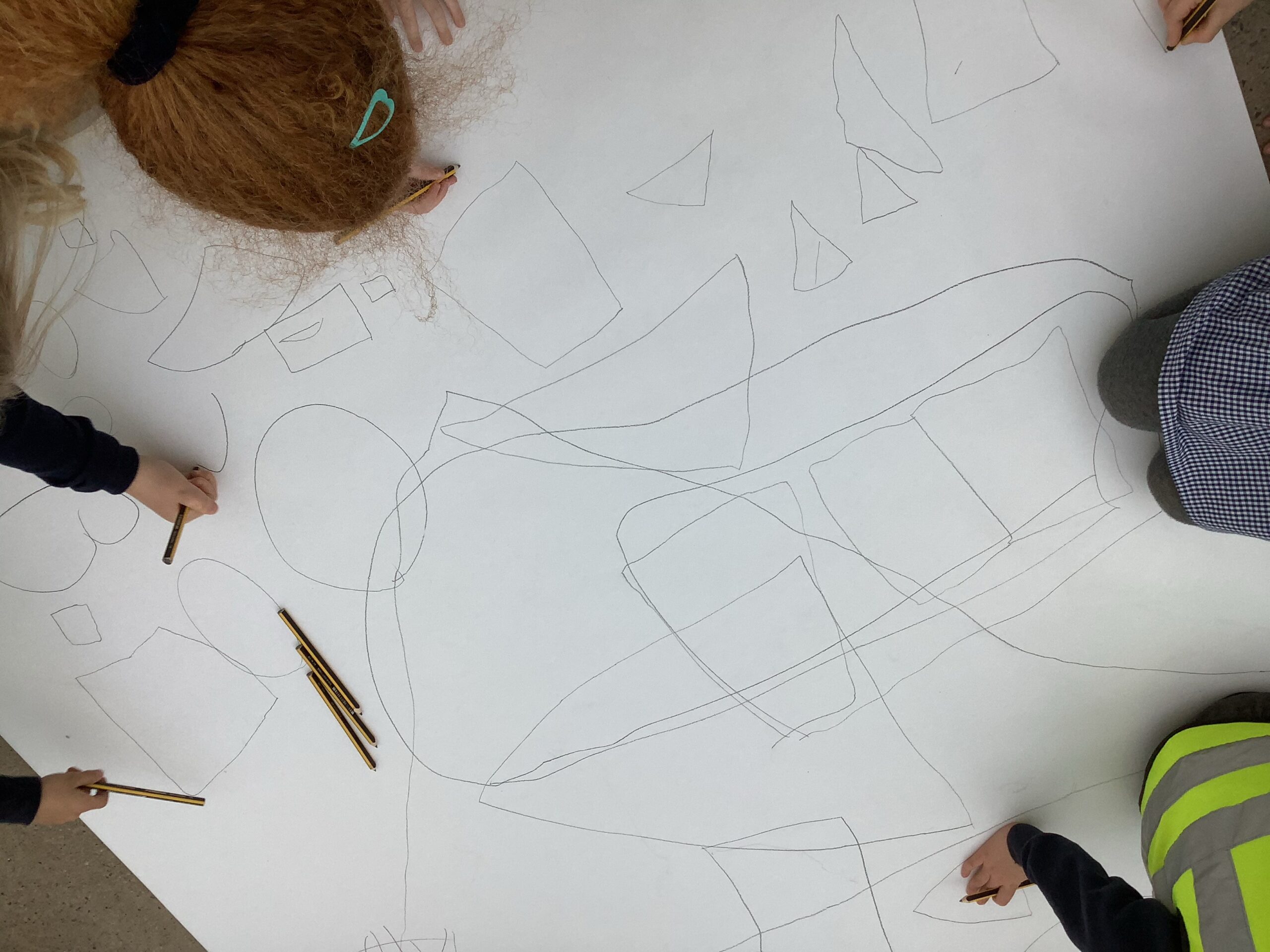
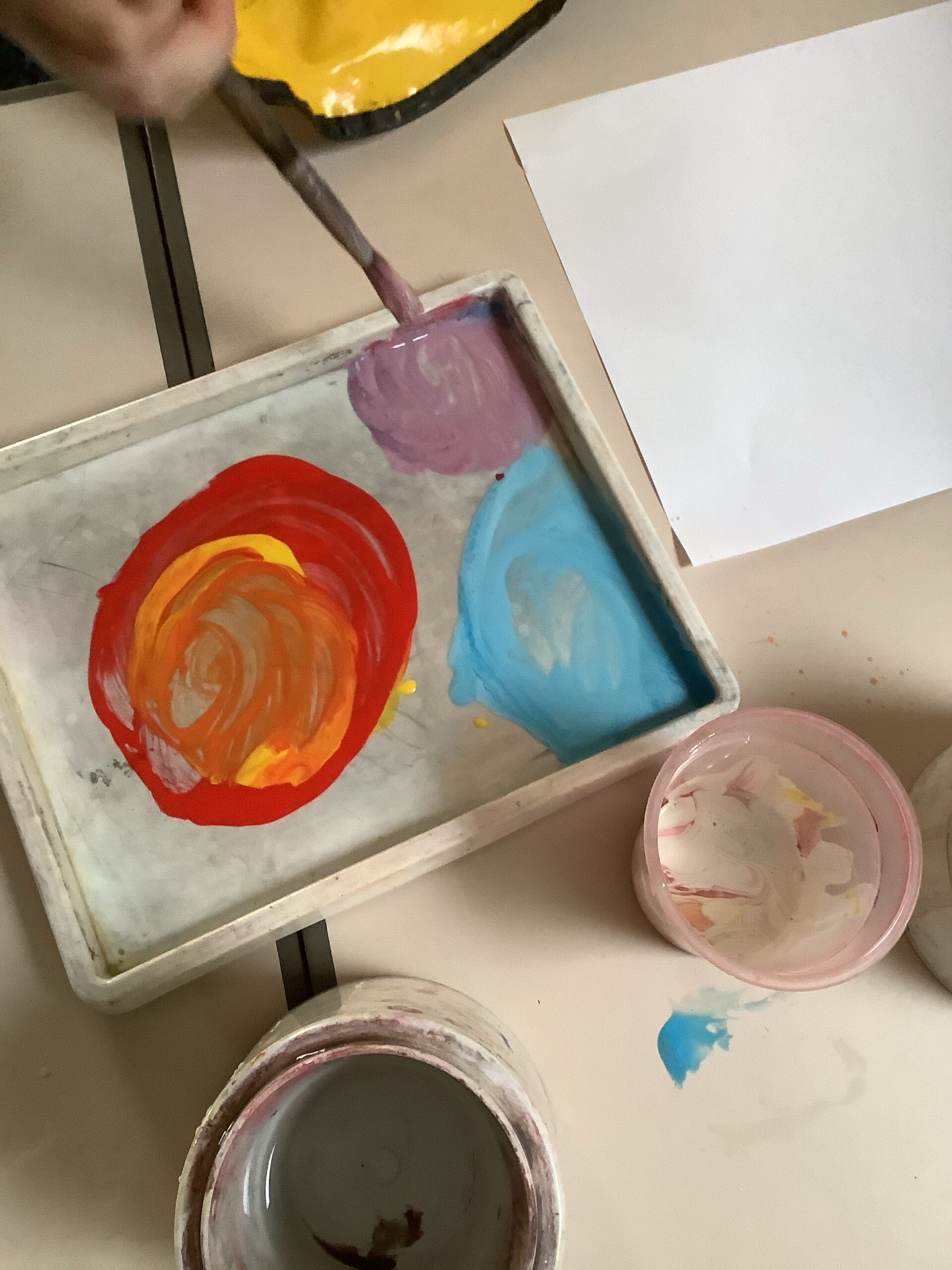
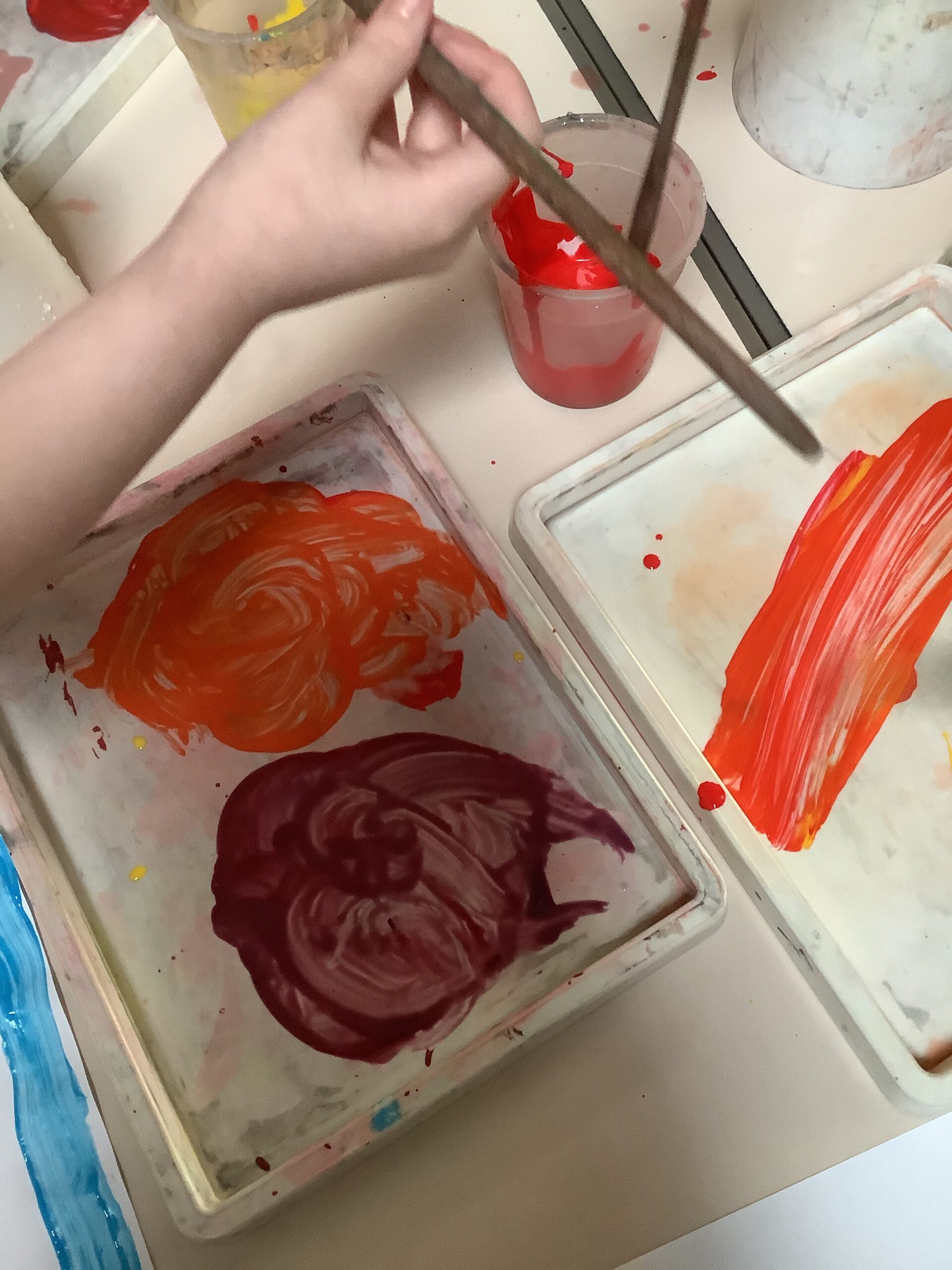
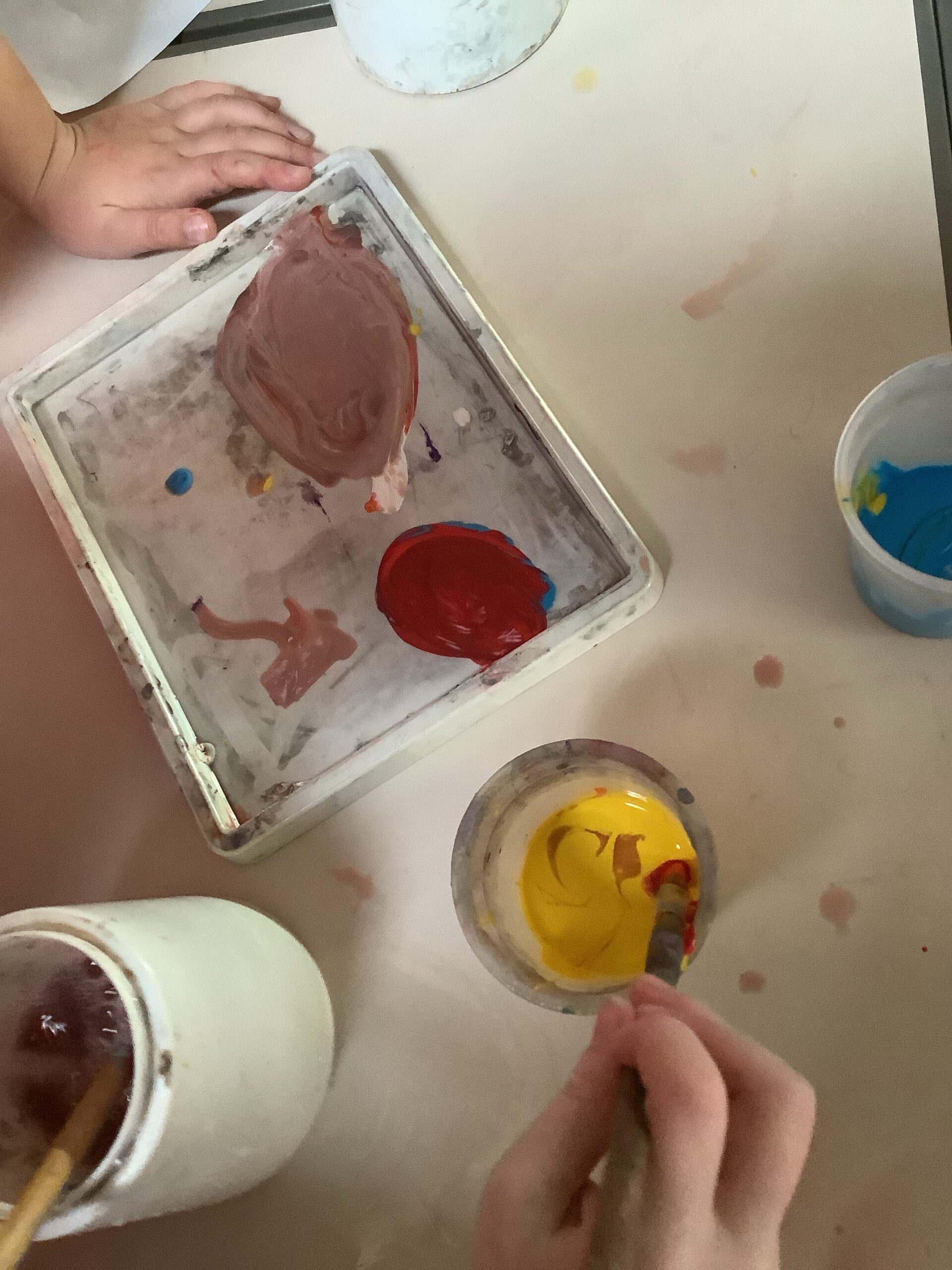
We hope you’re managing to stay happy, healthy and safe while you’re not with us here in school. You are still very much a part of our school community so please get in touch with us if you need to.
Maths
Have a go at these maths lessons and worksheets.
You don’t have to print the worksheets. Your child can write or draw their answers on paper. Your child’s learning will be most effective if you sit with them to pause the clip and check / praise / support your child as the clip moves on.
Don’t forget to practise number bonds on Numbots or times tables on Times Table Rock Stars. Email your child’s class teacher if you need your login and password details.
(Suggested time: 30 minutes of Maths and 15 minutes of Numbots/Rock Stars daily)
Reading fluency
This is the reading fluency that we’ll read in class this week. In school, we generally follow this sequence:
(Suggested time: 15 minutes daily)
Phonics
We teach a phonics lesson daily at school. Your child should have a ‘Practise Phonics’ book that they bring home from school. The sticker on the front will indicate which phase they’re working at. On Phonics Play, the activities and games match the phases. If you’re unsure which phase your child is working on, email your class teacher.
If your child has completed the phonics reading books, they can use some Phase 5b, 5c, 5d or Phase 6 resources.
Use a different Phonics Play activity for :
Login details are Sphere (user name) and Spher3 (password).
(Suggested time: 20 minutes daily)
Reading
We’ll be using this ‘RIC‘ text in class to practise comprehension skills.
RIC stands for:
Read for 10-15 minutes daily. You could read the books you have brought home from school or any other books you have at home. Remember that the ‘Practise Phonics’ book is designed to be read more than once, to help with segmenting (sounding out), blending (putting the sounds back together) and fluency.
(Suggested time: 10-15 minutes daily)
Writing
These writing lessons all about non-chronological reports. There’s a whole series of lessons, but start at Lesson 1 and work through, doing one (or maybe even two) each day. (If you’re self-isolating in your second week, stick with the series of lessons you’ve already started and aim to complete the full series.)
(Suggested time: 30-40 minutes for each)
Spelling
This week’s spellings are on our spelling page. Complete one task each day:
(Suggested time: 15-20 minutes daily)
Topic
Our topic this half-term is art. Look at these lessons on printing. Or you can get creative using ideas from The Let’s Go Club on the BBC.
(Suggested time: 30-40 minutes)
Science
Our science lessons are all about investigating. Have a go at these six lessons. Start at Lesson 1 and work through, doing two or three in the week.
(Suggested time: 30-45 minutes)
PE
Don’t forget to do some daily exercise!
Do two of these Five Minute Moves from Joe Wicks each day – spread them across the day as if they were playtimes, maybe!
Have a go at one of the Change for Life indoor activities or a Cosmic Kids yoga session each day.
(Suggested time: 30 minutes daily)
Extra stuff…
As an extra (or as an alternative, if this helps to motivate your child)…
This sequence of lessons is all about The Nativity story.
Living and Learning is important to help us live and learn together. Here are some lesson from Oak National Academy called Forever Friends.
We hope you’re managing to stay happy, healthy and safe while you’re not with us here in school. You are still very much a part of our school community so please get in touch with us if you need to.
Maths
Have a go at these maths lessons and worksheets.
You don’t have to print the worksheets. Your child can write or draw their answers on paper. Your child’s learning will be most effective if you sit with them to pause the clip and check / praise / support your child as the clip moves on.
Don’t forget to practise number bonds on Numbots or times tables on Times Table Rock Stars. Email your child’s class teacher if you need your login and password details.
(Suggested time: 30 minutes of Maths and 15 minutes of Numbots/Rock Stars daily)
Reading fluency
This is the reading fluency that we’ll read in class this week. In school, we generally follow this sequence:
(Suggested time: 15 minutes daily)
Phonics
We teach a phonics lesson daily at school. Your child should have a ‘Practise Phonics’ book that they bring home from school. The sticker on the front will indicate which phase they’re working at. On Phonics Play, the activities and games match the phases. If you’re unsure which phase your child is working on, email your class teacher.
If your child has completed the phonics reading books, they can use some Phase 5b, 5c, 5d or Phase 6 resources.
Use a different Phonics Play activity for :
Login details are Sphere (user name) and Spher3 (password).
(Suggested time: 20 minutes daily)
Reading
We’ll be using this ‘RIC‘ text in class to practise comprehension skills.
RIC stands for:
Read for 10-15 minutes daily. You could read the books you have brought home from school or any other books you have at home. Remember that the ‘Practise Phonics’ book is designed to be read more than once, to help with segmenting (sounding out), blending (putting the sounds back together) and fluency.
(Suggested time: 10-15 minutes daily)
Writing
These writing lessons all about non-chronological reports. There’s a whole series of lessons, but start at Lesson 1 and work through, doing one (or maybe even two) each day. (If you’re self-isolating in your second week, stick with the series of lessons you’ve already started and aim to complete the full series.)
(Suggested time: 30-40 minutes for each)
Spelling
This week’s spellings are on our spelling page. Complete one task each day:
(Suggested time: 15-20 minutes daily)
Topic
Our topic this half-term is art. Look at these lessons on printing. Or you can get creative using ideas from The Let’s Go Club on the BBC.
(Suggested time: 30-40 minutes)
Science
Our science lessons are all about investigating. Have a go at these six lessons. Start at Lesson 1 and work through, doing two or three in the week.
(Suggested time: 30-45 minutes)
PE
Don’t forget to do some daily exercise!
Do two of these Five Minute Moves from Joe Wicks each day – spread them across the day as if they were playtimes, maybe!
Have a go at one of the Change for Life indoor activities or a Cosmic Kids yoga session each day.
(Suggested time: 30 minutes daily)
Extra stuff…
As an extra (or as an alternative, if this helps to motivate your child)…
This sequence of lessons is all about The Nativity story.
Living and Learning is important to help us live and learn together. Here are some lesson from Oak National Academy called Forever Friends.
1A and 1,2B had amazing trips to Leeds Art Gallery today. We were art detectives – looking for shapes around the gallery. We drew what we saw and discussed the abstract art that we saw. We also visited the Henry Moore Institute next door, looking at sculptures and talking about how they made us feel. It was also very exciting going on a coach together!
We enjoyed our science lessons this week. We poured water onto a plate of Skittles and observed closely to see what happened. The children offered suggestions as to what they thought.
What happens to Skittles in water?
The water washed the colour off.
The colour got sucked away by the water.
The water absorbed the colour.
The colours all ran off together.